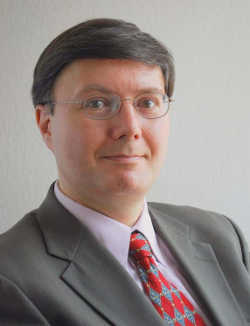LAKE COUNTY, Calif. – The Board of Supervisors will consider another proposed ordinance to enforce public health orders, this one focusing first on education and training before levying administrative fines.
The meeting will begin at 9 a.m. Tuesday, Aug. 11.
The supervisors will meet in the board chambers on the first floor of the Lake County Courthouse, 255 N. Forbes St., Lakeport, for a hybrid meeting format which also will include the opportunity for community members to continue to participate virtually.
The meeting can be watched live on Channel 8, online at https://countyoflake.legistar.com/Calendar.aspx and on the county’s Facebook page. Accompanying board documents, the agenda and archived board meeting videos also are available at that link.
To participate in real-time, join the Zoom meeting by clicking this link at 9 a.m. The meeting ID is 968 5797 8176, password 344284.
To submit a written comment on any agenda item please visit https://countyoflake.legistar.com/Calendar.aspx and click on the eComment feature linked to the meeting date. If a comment is submitted after the meeting begins, it may not be read during the meeting but will become a part of the record.
At 9:02 a.m., Public Health Officer Dr. Gary Pace will give the board an update on COVID-19.
At 11 a.m., Supervisor EJ Crandell will ask the board to consider a draft ordinance to provide for graduated levels of enforcement of public health orders through education and training and the imposition of administrative fines.
Last week, Crandell had intended to have the board consider an urgency ordinance that also would have imposed fees and administrative fines but pulled it from consideration.
This week, Crandell is returning with an ordinance that would focus on education and training in seeking compliance with Public Health orders.
He said the Blue Collar Committee – a group of local business owners assembled by Supervisor Rob Brown to consult on COVID-19-related matters – drafted its own ordinance. Crandell noted in his report that “many of the points they included in it serve as the basis for the Ordinance I am presenting today. More recently, I have received another draft from community members who support enforcement, also attached, and I am appreciative of the efforts of these folks as well.”
Crandell’s ordinance differs significantly from the one presented last week, although it has the same administrative fine structure based on Government Code section 25132, subdivision (b): up to $100 for a first violation, up to $200 for a second violation of the same ordinance within one year of the first violation and not more than $500 for each additional violation of the same ordinance within one year of the first violation.
The new ordinance defines “enforcement officer” as the Health Services director and Community Development director or their designees, and any official designated by the Board of Supervisors to enforce the ordinance.
Examples of violations the ordinance lists include, but are not limited to, a business operating when that business sector has been ordered closed, and failure to adhere to masking, social distancing and mandated hygiene requirements.
Crandell said in his report that if a violation is determined to be occurring, an enforcement officer will contact the responsible party and request correction while offering assistance in the form of training and/or information to achieve compliance and allowing a reasonable time of not less than five days to make the correction.
If informal enforcement is unsuccessful, the enforcement officer will issue a notice of violation that provides up to 10 days to make the correction. “In those rare cases where the violation is still not corrected in ten days, the Enforcement Officer may impose an administrative fine, not to exceed $100 for the first violation, $200 for the second and $500 for additional violations, within one year of the first,” Crandell said in his memo.
Anyone who receives a notice of violation may file a written appeal to the Board of Supervisors within 10 days. “Appeals will be heard by our Board, allowing the party an opportunity to testify and present evidence. Our Board will make the decision as to whether an administrative fine will be imposed,” Crandell wrote.
Crandell concluded, “With hope we have moved beyond the COVID-19 crisis, this Ordinance would sunset on October 1, 2021, unless further action is taken by our Board.”
Also on Tuesday, in an untimed item, the board will consider recommendations for the formation of an Economic Development Task Force.
The full agenda follows.
CONSENT AGENDA
5.1: Second reading, adopt ordinance Amending Articles 27 and 68 of Chapter Twenty-One of the Lake County Code to clarify the definition of public lands in regard to commercial cannabis cultivation.
5.2: Approve additions to the County of Lake COVID-19 Public Health Emergency Return to Work - Worksite Protection Protocol, authorizing the county administrative officer or her designee to initiate the meet and confer process with labor groups.
5.3: Approve county’s COVID-19 interim policy for working remotely.
5.4: Approve agreement with Humboldt State University Sponsored Programs Foundation for Equity Assessment and Cannabis Local Equity Program Plan in the amount of $100,000 and authorize the chair to sign.
5.5: Adopt resolution approving agreement with California Department of Food Agriculture for Pierce’s Disease/ GWSS Agreement in the amount of $54,423.15 for FY 20/22.
5.6: Adopt resolution approving agreement with the State of California, Department of Food and Agriculture for State Organic Program Cooperative Agreement # 20-0198-000-SA in the Amount of $5,520.
5.7: Adopt resolution approving agreement with California Department of Food Agriculture for Certified Farmer’s Market Program investigation and enforcement in the amount of $1,425 Agreement # 20-0140-000-SA.
5.8: Approve budget transfer and purchase for new asset in the amount of $2,450 to purchase pickup truck and authorize the chair to sign.
5.9: (a) Waive the formal bidding process, pursuant to Lake County Code Section 38.2, as it is not in the public interest due to the unique nature of goods or services; (b) approve the agreement between the county of Lake and The SmithWaters Group for patient rights advocacy for FY 2020-21 for a contract maximum of $45,000, and authorize the board chair to sign the agreement.
5.10: Approve resolution of the governing board of the Kelseyville Unified School District Increasing school facilities fees as authorized by Government Code Section 65995 (b) 3.
5.11: Adopt resolution approving revenue grant agreement with the state of California for Help America Vote Act of 2002 (HAVA) and CoronaVirus Aid, Relief and Economic Security (CARES) Act and authorizing the Registrar of Voters to execute the agreement with the state.
5.12: Approve the Continuation of a local health emergency and order prohibiting the endangerment of the community through the unsafe removal, transportation, and disposal of fire debris for the Mendocino Complex fire.
5.13: Approve the continuation of a local health emergency related to the 2019 Coronavirus (COVID-19) as Proclaimed by the Lake County Public Health officer.
5.14: Approve the continuation of a local emergency due to the Mendocino Complex fire incident (River and Ranch fires).
5.15: Approve the continuation of a local emergency due to the Pawnee fire Incident.
5.16: Approve the continuation of a local emergency due to COVID-19.
5.17: Approve long-distance travel for Sgt. Joe Dutra to attend active shooter training in Grapevine, Texas, for the period Oct. 30 to Nov. 4, 2020, at a cost not to exceed $3,500.
5.18: Approve long-distance travel for Sgt. Ben Moore and Det. Nate Newton to attend Watchguard training in Allen, Texas, for the period Sept. 13 to 18, 2020, at a cost not to exceed $5,000.
5.19: Approve contract between county of Lake and Adventist Health for the provision of out stationed eligibility specialists for the donation amount of $70,276.80 per fiscal year from July 1, 2020, to June 30, 2023, and authorize the chair to sign.
TIMED ITEMS
6.1, 9:01 a.m.: Public input.
6.2, 9:02 a.m.: Consideration of update on COVID-19.
6.3, 9:30 a.m.: Nuisance abatement hearing for Ryker Schenck, 2922 Gardner St. Nice (APN No. 031-134-57).
6.4, 11 a.m.: Consideration of an ordinance of the Lake County Board of Supervisors to provide for graduated levels of enforcement of public health orders through education and training and the imposition of administrative fines.
UNTIMED ITEMS
7.2: Consideration of recommendations for the formation of an Economic Development Task Force.
7.3: Consideration of resolution authorizing a joint application by the county of Lake and the Elijah House Foundation for the California Department of Housing and Community Development Homekey Grant Program.
CLOSED SESSION
8.1: Conference with legal counsel: Threat to the security of public facilities and delivery of essential public services pursuant to Government Code Section 54957.
Email Elizabeth Larson atThis email address is being protected from spambots. You need JavaScript enabled to view it. . Follow her on Twitter, @ERLarson, or Lake County News, @LakeCoNews.
The meeting will begin at 9 a.m. Tuesday, Aug. 11.
The supervisors will meet in the board chambers on the first floor of the Lake County Courthouse, 255 N. Forbes St., Lakeport, for a hybrid meeting format which also will include the opportunity for community members to continue to participate virtually.
The meeting can be watched live on Channel 8, online at https://countyoflake.legistar.com/Calendar.aspx and on the county’s Facebook page. Accompanying board documents, the agenda and archived board meeting videos also are available at that link.
To participate in real-time, join the Zoom meeting by clicking this link at 9 a.m. The meeting ID is 968 5797 8176, password 344284.
To submit a written comment on any agenda item please visit https://countyoflake.legistar.com/Calendar.aspx and click on the eComment feature linked to the meeting date. If a comment is submitted after the meeting begins, it may not be read during the meeting but will become a part of the record.
At 9:02 a.m., Public Health Officer Dr. Gary Pace will give the board an update on COVID-19.
At 11 a.m., Supervisor EJ Crandell will ask the board to consider a draft ordinance to provide for graduated levels of enforcement of public health orders through education and training and the imposition of administrative fines.
Last week, Crandell had intended to have the board consider an urgency ordinance that also would have imposed fees and administrative fines but pulled it from consideration.
This week, Crandell is returning with an ordinance that would focus on education and training in seeking compliance with Public Health orders.
He said the Blue Collar Committee – a group of local business owners assembled by Supervisor Rob Brown to consult on COVID-19-related matters – drafted its own ordinance. Crandell noted in his report that “many of the points they included in it serve as the basis for the Ordinance I am presenting today. More recently, I have received another draft from community members who support enforcement, also attached, and I am appreciative of the efforts of these folks as well.”
Crandell’s ordinance differs significantly from the one presented last week, although it has the same administrative fine structure based on Government Code section 25132, subdivision (b): up to $100 for a first violation, up to $200 for a second violation of the same ordinance within one year of the first violation and not more than $500 for each additional violation of the same ordinance within one year of the first violation.
The new ordinance defines “enforcement officer” as the Health Services director and Community Development director or their designees, and any official designated by the Board of Supervisors to enforce the ordinance.
Examples of violations the ordinance lists include, but are not limited to, a business operating when that business sector has been ordered closed, and failure to adhere to masking, social distancing and mandated hygiene requirements.
Crandell said in his report that if a violation is determined to be occurring, an enforcement officer will contact the responsible party and request correction while offering assistance in the form of training and/or information to achieve compliance and allowing a reasonable time of not less than five days to make the correction.
If informal enforcement is unsuccessful, the enforcement officer will issue a notice of violation that provides up to 10 days to make the correction. “In those rare cases where the violation is still not corrected in ten days, the Enforcement Officer may impose an administrative fine, not to exceed $100 for the first violation, $200 for the second and $500 for additional violations, within one year of the first,” Crandell said in his memo.
Anyone who receives a notice of violation may file a written appeal to the Board of Supervisors within 10 days. “Appeals will be heard by our Board, allowing the party an opportunity to testify and present evidence. Our Board will make the decision as to whether an administrative fine will be imposed,” Crandell wrote.
Crandell concluded, “With hope we have moved beyond the COVID-19 crisis, this Ordinance would sunset on October 1, 2021, unless further action is taken by our Board.”
Also on Tuesday, in an untimed item, the board will consider recommendations for the formation of an Economic Development Task Force.
The full agenda follows.
CONSENT AGENDA
5.1: Second reading, adopt ordinance Amending Articles 27 and 68 of Chapter Twenty-One of the Lake County Code to clarify the definition of public lands in regard to commercial cannabis cultivation.
5.2: Approve additions to the County of Lake COVID-19 Public Health Emergency Return to Work - Worksite Protection Protocol, authorizing the county administrative officer or her designee to initiate the meet and confer process with labor groups.
5.3: Approve county’s COVID-19 interim policy for working remotely.
5.4: Approve agreement with Humboldt State University Sponsored Programs Foundation for Equity Assessment and Cannabis Local Equity Program Plan in the amount of $100,000 and authorize the chair to sign.
5.5: Adopt resolution approving agreement with California Department of Food Agriculture for Pierce’s Disease/ GWSS Agreement in the amount of $54,423.15 for FY 20/22.
5.6: Adopt resolution approving agreement with the State of California, Department of Food and Agriculture for State Organic Program Cooperative Agreement # 20-0198-000-SA in the Amount of $5,520.
5.7: Adopt resolution approving agreement with California Department of Food Agriculture for Certified Farmer’s Market Program investigation and enforcement in the amount of $1,425 Agreement # 20-0140-000-SA.
5.8: Approve budget transfer and purchase for new asset in the amount of $2,450 to purchase pickup truck and authorize the chair to sign.
5.9: (a) Waive the formal bidding process, pursuant to Lake County Code Section 38.2, as it is not in the public interest due to the unique nature of goods or services; (b) approve the agreement between the county of Lake and The SmithWaters Group for patient rights advocacy for FY 2020-21 for a contract maximum of $45,000, and authorize the board chair to sign the agreement.
5.10: Approve resolution of the governing board of the Kelseyville Unified School District Increasing school facilities fees as authorized by Government Code Section 65995 (b) 3.
5.11: Adopt resolution approving revenue grant agreement with the state of California for Help America Vote Act of 2002 (HAVA) and CoronaVirus Aid, Relief and Economic Security (CARES) Act and authorizing the Registrar of Voters to execute the agreement with the state.
5.12: Approve the Continuation of a local health emergency and order prohibiting the endangerment of the community through the unsafe removal, transportation, and disposal of fire debris for the Mendocino Complex fire.
5.13: Approve the continuation of a local health emergency related to the 2019 Coronavirus (COVID-19) as Proclaimed by the Lake County Public Health officer.
5.14: Approve the continuation of a local emergency due to the Mendocino Complex fire incident (River and Ranch fires).
5.15: Approve the continuation of a local emergency due to the Pawnee fire Incident.
5.16: Approve the continuation of a local emergency due to COVID-19.
5.17: Approve long-distance travel for Sgt. Joe Dutra to attend active shooter training in Grapevine, Texas, for the period Oct. 30 to Nov. 4, 2020, at a cost not to exceed $3,500.
5.18: Approve long-distance travel for Sgt. Ben Moore and Det. Nate Newton to attend Watchguard training in Allen, Texas, for the period Sept. 13 to 18, 2020, at a cost not to exceed $5,000.
5.19: Approve contract between county of Lake and Adventist Health for the provision of out stationed eligibility specialists for the donation amount of $70,276.80 per fiscal year from July 1, 2020, to June 30, 2023, and authorize the chair to sign.
TIMED ITEMS
6.1, 9:01 a.m.: Public input.
6.2, 9:02 a.m.: Consideration of update on COVID-19.
6.3, 9:30 a.m.: Nuisance abatement hearing for Ryker Schenck, 2922 Gardner St. Nice (APN No. 031-134-57).
6.4, 11 a.m.: Consideration of an ordinance of the Lake County Board of Supervisors to provide for graduated levels of enforcement of public health orders through education and training and the imposition of administrative fines.
UNTIMED ITEMS
7.2: Consideration of recommendations for the formation of an Economic Development Task Force.
7.3: Consideration of resolution authorizing a joint application by the county of Lake and the Elijah House Foundation for the California Department of Housing and Community Development Homekey Grant Program.
CLOSED SESSION
8.1: Conference with legal counsel: Threat to the security of public facilities and delivery of essential public services pursuant to Government Code Section 54957.
Email Elizabeth Larson at

 How to resolve AdBlock issue?
How to resolve AdBlock issue? 



























